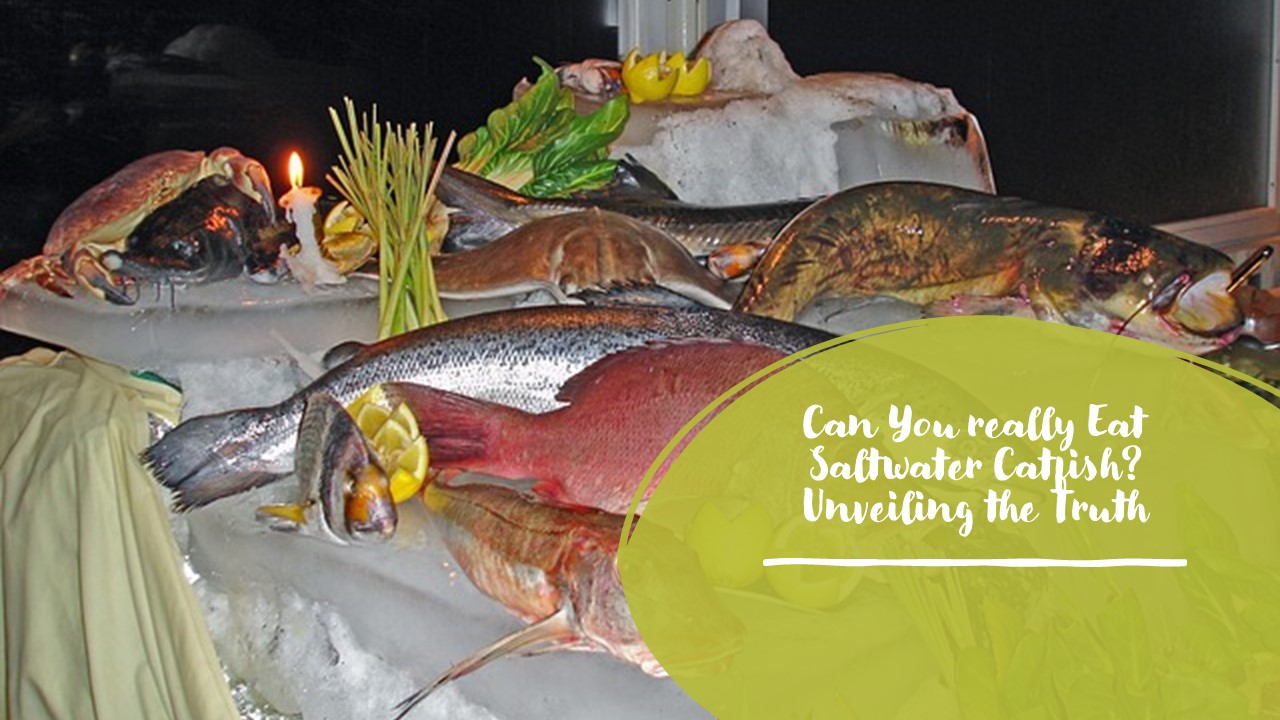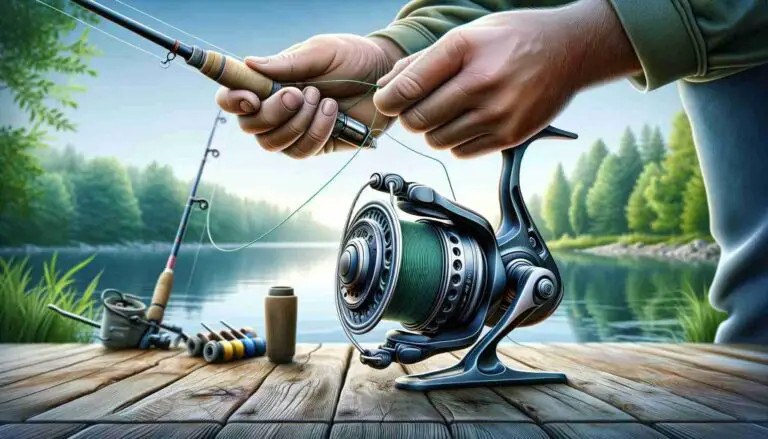Ever wondered whether that saltwater catfish you caught can be more than just a fun trophy to show off? If you’re like many anglers, you’ve probably asked the question, “Can you really eat saltwater catfish?” at some point. You might have even heard some controversial tales about this mysterious marine creature, making you question its place in your kitchen.
Yes, you can indeed eat saltwater catfish. Despite some misconceptions, when properly handled and prepared, saltwater catfish can be a delicious addition to your menu. Not only does it offer a unique flavor profile, but it also provides various health benefits, including high-quality protein, essential omega-3 fatty acids, and a variety of vitamins and minerals. Whether grilled, fried, or added to a curry, saltwater catfish presents a culinary opportunity that’s well worth exploring.
But there’s more to it. This post aims to navigate these murky waters, providing clear, fact-based answers about eating saltwater catfish. I’ll dive deep into the habitat of saltwater catfish, debunk the myths surrounding its consumption, and serve up some tantalizing recipes for those adventurous enough to try. Let’s set sail on this oceanic culinary adventure!
Unveiling the Saltwater Catfish
Before I venture into this discussion about consuming this intriguing creature, let’s spend a moment getting to know the saltwater catfish better. Also known as ‘Hardhead Catfish’ or ‘Gaff-topsail Catfish’, these marine species have a distinct look with their scale-less, slimy bodies and sharp, venomous spines. They are primarily found in the Atlantic Ocean’s warm coastal waters, stretching from Massachusetts all the way to Brazil.
There’s a wide array of saltwater catfish species, each having its unique characteristics. The Gaff-topsail Catfish, for instance, is renowned for its long dorsal fin (which looks a bit like a sail), while the Hardhead Catfish is easily recognized by its smaller, robust body.
Now, while these descriptions might not make the saltwater catfish sound like the most appetizing catch in the sea, remember, appearances can be deceiving! Let’s wade through the debate surrounding its edibility.
The Debate: Edibility of Saltwater Catfish
The discussion about the edibility of saltwater catfish has created quite a stir amongst fishing and culinary communities. Many anglers view saltwater catfish as a ‘nuisance fish’ that does more harm than good. Some even say that it’s not worth the hassle to prepare, while others worry about the potential health risks involved.
Among the more common myths are that saltwater catfish taste terrible, have unappealing textures, or even carry harmful toxins. These misconceptions often originate from those who’ve had a bad experience or two—perhaps they mishandled the fish or didn’t prepare it correctly.
Then there’s the concern about health risks. It’s true that catfish, like all marine life, can be affected by environmental pollutants. However, it’s essential to remember that the risk of contamination isn’t exclusive to catfish—it’s a concern for all seafood.
In fact, with proper knowledge and preparation, many of these issues can be easily managed. Let’s delve into the truth about whether you can really eat saltwater catfish.
The Truth: Can You Really Eat Saltwater Catfish?
So, can you really eat saltwater catfish? Drumroll, please… Yes, you absolutely can! Contrary to the naysayers, saltwater catfish can indeed find a delicious place on your dinner plate. And guess what? They can be quite tasty, too!
You might wonder why there’s such a debate when the answer seems so straightforward. Well, the truth lies in the preparation. The difference between a bad catfish dish and a great one often boils down to the way the fish is handled, cleaned, and cooked.
But don’t just take my word for it. Many cultures worldwide, particularly in Asia and Africa, have been enjoying catfish as part of their diet for centuries. They appreciate the fish for its unique flavor profile and the variety of ways it can be cooked.
Of course, as with all seafood, there are certain health considerations to keep in mind. However, when sourced from clean waters and prepared correctly, saltwater catfish can be as safe and delicious to eat as any other popular seafood. Let’s dive into how to prepare this marine delicacy correctly.
Preparing Saltwater Catfish for Consumption
Preparing saltwater catfish for consumption might seem like a daunting task at first, but with a bit of patience and know-how, it can become quite straightforward. The key to a delicious catfish dish lies in proper handling and preparation. Here’s how you do it.
- Handling the Catfish: Always remember that saltwater catfish have sharp, venomous spines on their dorsal and pectoral fins. So, be extra careful while handling them. Use gloves and pliers to safely hold the fish.
- Cleaning and Skinning the Catfish: The next step involves cleaning and skinning the catfish. To do this, you’ll first need to cut off the head. Then, make an incision along the fish’s back, all the way to the tail. Using a pair of pliers, peel off the skin from the body.
- Filleting the Catfish: After skinning, you’ll need to fillet the catfish. Cut along the backbone from head to tail, then slice the fillet away from the ribs. Be sure to cut out the dark meat, as this can give the fish a ‘muddy’ taste.
- Rinsing and Cooking: Finally, rinse the fillets under cold water and pat them dry. They’re now ready to be cooked!
One common mistake people make is not cleaning the catfish soon after catching it. The longer you wait, the stronger the ‘fishy’ taste becomes. Hence, it’s crucial to clean and prepare the catfish as soon as possible to maintain its freshness and mild flavor.
In the next section, I’ll share some delightful recipes that can transform your fresh saltwater catfish fillets into delicious meals!
Mouth-Watering Saltwater Catfish Recipes
Now that you’ve properly cleaned and prepared your saltwater catfish fillets, it’s time to bring out the chef in you! Here are some fantastic recipes that will help you create a feast with your saltwater catfish:
- Saltwater Catfish Tacos: Tacos are a crowd-pleaser, and when filled with tender, flaky catfish, they’re sure to wow your taste buds. You can season the fillets with a blend of spices, fry them until crispy, and serve on warm tortillas with a tangy slaw and a drizzle of spicy mayo.
- Grilled Catfish with Lemon Butter: For a healthier option, consider grilling your catfish. Season your fillets with salt, pepper, and a squeeze of lemon, then grill until the fish is opaque and flakes easily. Top it off with a dollop of homemade lemon butter for an added zest!
- Catfish Curry: If you’re up for some international flavors, a rich and creamy catfish curry can be a delightful option. Simmer the fillets in a sauce made of coconut milk, curry paste, and an array of aromatic spices, and serve over steaming hot rice.
- Southern Fried Catfish: Looking for a classic comfort food? Southern fried catfish is your answer. Dredge the fillets in a mixture of cornmeal, flour, and spices, then deep-fry until golden brown. Serve it with a side of coleslaw, fries, and a tangy tartar sauce for a meal that’ll remind you of a breezy day on the Southern coast.
Remember, cooking is an art, so feel free to experiment with these recipes and make them your own! Up next, let’s look at some of the health benefits you’ll enjoy from these delicious meals.
Health Benefits of Saltwater Catfish
Saltwater catfish doesn’t just bring a unique taste to your plate; it’s also packed with numerous health benefits. A delectable source of lean protein, it provides a wealth of nutrients without the hefty calorie count. Here’s what you can gain from incorporating this sea creature into your diet.
- Protein Powerhouse: Like most fish, saltwater catfish is an excellent source of high-quality protein. Protein is essential for muscle growth and repair, immune function, and overall body maintenance.
- Omega-3 Fatty Acids: Saltwater catfish contains omega-3 fatty acids, known for their heart-healthy benefits. These essential fats can help lower blood pressure, reduce inflammation, and decrease the risk of heart disease.
- Vitamins and Minerals: Saltwater catfish is rich in various vitamins and minerals. It provides B-vitamins, especially vitamin B12, crucial for brain health and the formation of red blood cells. It’s also a source of minerals like potassium and magnesium.
- Low in Fat and Calories: If you’re watching your weight, saltwater catfish can be a great choice. It’s low in fat and calories yet satisfying, making it a staple in many healthy eating plans.
- Sustainable Choice: Lastly, eating saltwater catfish can be a more sustainable seafood choice. Unlike some overfished species, catfish are plentiful and reproduce quickly, making them a more eco-friendly option.
Of course, the way you prepare your catfish can influence these health benefits. Grilling or baking are healthier cooking methods than deep-frying. But no matter how you cook it, saltwater catfish can be a delicious and nutritious addition to your diet.
Frequently Asked Questions (FAQs) about Saltwater Catfish
Over time, I’ve received quite a few questions about saltwater catfish and their edibility. So, let’s address some of the most frequently asked ones.
- Does Saltwater Catfish Taste Good? Yes, it does! The taste of saltwater catfish is mild and sweet, similar to other popular white fish. The key to a delicious catfish dish is in the proper handling and preparation of the fish.
- Is Saltwater Catfish Safe to Eat? Yes, it’s safe to eat saltwater catfish, provided it’s sourced from clean waters and prepared correctly. As with any seafood, it’s crucial to ensure proper handling and cooking to eliminate any potential health risks.
- How Do I Remove the ‘Fishy’ Taste from Catfish? Firstly, clean and prepare the catfish as soon as you catch it to maintain its mild flavor. You can also soak the fillets in milk or a saltwater brine for an hour before cooking to further reduce any ‘fishy’ taste.
- Can I Eat Raw Catfish in Sushi or Ceviche? While it’s technically possible to eat raw catfish, it’s not recommended due to the risk of foodborne illnesses. Always cook catfish (and all seafood) to the appropriate temperature to ensure it’s safe to eat.
- What Pairs Well with Saltwater Catfish? Saltwater catfish is a versatile ingredient that pairs well with a variety of foods. You can serve it with fresh vegetables, citrus fruits, potatoes, or rice. It also goes well with spices like garlic, paprika, and cayenne pepper for a flavorful punch.
If you have any other questions, don’t hesitate to drop them in the comments. I’ll be glad to answer them. Let’s wrap this up in the next section!
Conclusion
So, there you have it. You’ve journeyed through the facts, busted the myths, and hopefully put to rest any reservations you might have had about eating saltwater catfish. The verdict is clear: Not only can you eat saltwater catfish, but with the right preparation, it can be quite a treat to your palate.
By adding this often-overlooked sea creature to your menu, you’re opening up a world of culinary possibilities. From tasty tacos to creamy curries, saltwater catfish lends itself beautifully to a range of dishes. Plus, its health benefits and sustainability make it a fantastic choice for anyone looking to explore new seafood options.
I hope this post has inspired you to give saltwater catfish a try, or if you’ve already been enjoying it, to try out some new recipes. Remember, the world of food is full of surprises, and sometimes the most unexpected ingredients can turn into the most delightful meals.
To complement this guide you must read this article: Best Time Of Day To Go Catfishing: Insider’s Guide To Success








